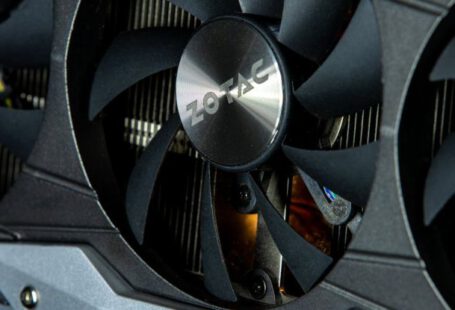Is your trusty PC starting to show signs of slowing down? You’re not alone. Over time, many computer users experience a decrease in speed and performance, which can be frustrating and impact productivity. Understanding why your PC slows down over time can help you take proactive steps to maintain its efficiency and keep it running smoothly. Let’s delve into the reasons behind this common issue and explore some ways to address it.
The Accumulation of Temporary Files
One of the primary reasons why your PC may be slowing down is the accumulation of temporary files. These files are created by various programs and applications as you use your computer. Over time, they can build up and take up valuable space on your hard drive, leading to a decrease in performance. Temporary files can include cache files, logs, and other data that are no longer needed but are still stored on your system.
To address this issue, it’s essential to regularly clear out temporary files from your PC. You can do this manually by deleting these files from the temporary folders on your computer or by using disk cleanup tools that can help you identify and remove unnecessary files efficiently.
Fragmented Hard Drive
Another common reason for a slow PC is a fragmented hard drive. When you save, delete, and modify files on your computer, the data can become fragmented, meaning it is stored in different locations on the hard drive. This fragmentation can slow down the read and write processes, leading to a decrease in performance.
To resolve this issue, you can use the built-in disk defragmentation tool on your computer to reorganize the data on your hard drive. This process can help improve the speed and efficiency of your system by ensuring that files are stored contiguously, making it easier for your computer to access them quickly.
Outdated Hardware or Software
Outdated hardware or software can also contribute to a slow PC. As technology advances, older hardware components may struggle to keep up with the demands of modern applications and programs. Similarly, outdated software may not be optimized for the latest operating systems, leading to compatibility issues and decreased performance.
If you’re experiencing slowdowns on your PC, consider upgrading your hardware components, such as adding more RAM or upgrading to a solid-state drive (SSD). Additionally, make sure to keep your software up to date by installing the latest updates and patches from developers. This can help improve compatibility, security, and performance on your system.
Overheating
Overheating is another common issue that can cause your PC to slow down. When your computer components, such as the CPU or graphics card, become too hot, they may throttle their performance to prevent damage. This thermal throttling can result in decreased speed and responsiveness on your system.
To prevent overheating, make sure that your computer is adequately ventilated and that the cooling system, such as fans or heat sinks, is functioning correctly. You can also use software tools to monitor the temperature of your components and take steps to keep them cool, such as cleaning out dust and debris from the internal components.
Malware and Viruses
Malware and viruses can also be culprits behind a slow PC. These malicious programs can infect your system, consume resources, and cause disruptions that impact performance. Symptoms of a malware infection can include pop-up ads, unusual system behavior, and decreased speed.
To address this issue, it’s crucial to install and regularly update antivirus software on your computer. Perform scans to detect and remove any malware or viruses that may be lurking on your system. Additionally, practice safe browsing habits and be cautious when downloading files or clicking on links from unknown sources to reduce the risk of infection.
Inadequate System Resources
Insufficient system resources, such as RAM or processing power, can also lead to a slow PC. When your computer runs out of resources, it may struggle to multitask efficiently and process data quickly, resulting in performance issues. This can be especially noticeable when running resource-intensive applications or having multiple programs open simultaneously.
To address this issue, consider upgrading your system’s hardware components to increase its capabilities. Adding more RAM, upgrading to a faster processor, or installing a dedicated graphics card can help boost the performance of your PC and prevent slowdowns caused by inadequate resources.
Inadequate Maintenance
Lastly, inadequate maintenance practices can contribute to a slow PC. Regularly maintaining your computer, such as cleaning out dust, updating software, and monitoring system performance, can help prevent issues that may lead to decreased speed and efficiency. Neglecting maintenance tasks can allow problems to accumulate and impact the overall performance of your system over time.
To keep your PC running smoothly, establish a maintenance routine that includes tasks such as cleaning out dust from internal components, updating software and drivers, monitoring system performance, and addressing any issues promptly. By staying proactive and taking care of your computer, you can help prevent slowdowns and keep it running optimally.
Keeping Your PC Running Smoothly
In conclusion, a slow PC can be a frustrating issue that impacts your productivity and overall computing experience. By understanding the reasons behind this common problem and taking proactive steps to address them, you can help keep your PC running smoothly and efficiently. Whether it’s clearing out temporary files, updating hardware and software, preventing overheating, or practicing good maintenance habits, there are various ways to optimize your system’s performance and prevent slowdowns over time. By staying vigilant and proactive, you can enjoy a faster, more responsive PC that meets your needs and keeps up with your demands.





